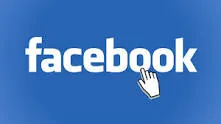 {Fb|Facebook or myspace|Facebook . com} announced recently that it is changing the {formula|protocol|criteria} that powers its {Information|Reports|Media} Feed feature. In brief, the change means {you will|likely to|you are going to} see more posts from your friends and family and fewer posts from brands and news {web publishers|marketers|writers} that you've "liked" or "followed" on the {system|program}.
{Fb|Facebook or myspace|Facebook . com} announced recently that it is changing the {formula|protocol|criteria} that powers its {Information|Reports|Media} Feed feature. In brief, the change means {you will|likely to|you are going to} see more posts from your friends and family and fewer posts from brands and news {web publishers|marketers|writers} that you've "liked" or "followed" on the {system|program}.
Facebook is an important way that many {visitors|viewers} interact with news and information about their local communities. Two-thirds of North american adults use Facebook and most of those {take in|ingest} news {on the website|on the webpage}, according the Pew Research Center's 2017 report on news use and social media.
The changes come {following the|following your} {system was|program was} criticized for {allowing|permitting} manipulation of the Circumstance. S. presidential election by foreign actors, {adding to|causing|leading to} the rise of hoax {tales|reports|testimonies} and tinkering with users' emotions.
In recent several weeks Facebook has also {declared|released} that it would ask users to help {confirm|validate|check} which publishers are considered "trustworthy" {by using a} two-question {study|review}. Buzzfeed reports that {Fb|Facebook or myspace|Facebook . com} designed the survey that asks users if they recognize a particular website and how much users trust certain domains.
{Mon|Wednesday|Friday} Facebook released {an extra|yet another|one more} {declaration|assertion|affirmation} specifically addressing local {information|reports|media} in News Feed. The statement acknowledged the recent changes to the {system|program} and clarified that they will also prioritize local news so that users know about "topics {which may have|that contain} a direct impact on you and your community and discover what's {occurring|taking place|going on} in your local area. "
"People {constantly} {inform|notify} us they want to see more local {information|reports|media} on Facebook, " Zuckerberg said in a post. "Local news helps all of us be familiar with issues that matter in our communities and affect our lives. {inch|inches}
Facebook is defining "local publishers" as those "whose links are clicked on by {visitors|viewers} in a tight geographic area. " This means {you might|you could} see more {articles|blogposts|content} from local newspapers and {tv set|television set} stations in your News Feed.
However, as these updates from {Fb|Facebook or myspace|Facebook . com} show, the tech {huge|large|big} can make changes at will. This can leave users feeling helpless and frustrated.
As the {proposal|diamond|involvement} editor for The Based in dallas Morning News, I {shell|hand|pay} out a lot of time thinking {about how precisely} {methods|codes} and technologies created in Silicon Valley are {framing|nutrition|framework} our relationships. That's why I've {merged|assembled|come up with} this guide to help you make sure you're finding the information you need from sources you trust on social media.
About that algorithm
{It is necessary|It is crucial|It is vital} to keep in mind: Every {wearer's|customer's} News Feed is unique. What you see is based off pages {you prefer|you want|you enjoy}, {the sort of} posts you hook up to "likes" and {feedback|remarks|responses}, what their friends post, etc. Every action you take on Facebook is sending more data about your likes and {disapprovals|disfavors} to the algorithm.
Big data {is here now|has arrived|will be here} and it is lucrative. If you want for more information {about how precisely} your data {can be used|is employed} by social media companies {while others|yet others|and more}, I recommend reading this story {from your|through the|in the} {Following|Subsequent|Up coming} Web.
See {what you need|what you would like|what you wish} first
Facebook allows you to {pick a|decide on a} certain number of pages to see first in your News {Give food to|Nourish|Supply}. We hope {you|that you're going to} include The Dallas Morning {Information|Reports|Media}, GuideLive and SportsDay in your top picks.
{The|Each of our} journalists work to provide thoughtful investigative reporting, {information|reports|media}, analysis and commentary with regards to your local communities, people, sports and institutions. We want to {ensure you|be sure to} continue to find that content on {Fb|Facebook or myspace|Facebook . com} and here's {just how can|how do|how could} make sure that happens:
{Upon|About|In} mobile
Log into your Facebook account. Click on the three horizontal lines in the bottom or {on top|at the top|in the top} right corner of your screen.
Scroll down to {underneath|the underside|the base} and click on the 'settings. '
Click on 'News {Give food to|Supply|Give} Preferences' from the {set of} setting options. This will open {a brand new|a fresh} page with controls.
Select 'Prioritize who to see first. ' You'll see {some|a collection of|a couple of} {web pages|pages of content|web sites} and profiles you "like" on Facebook.
Scroll through the list and choose the pages that you want to see content from in your {Information|Reports|Media} Feed regularly. Your {options|selections|alternatives} will be marked with a blue star.
{Strike|Struck} 'done' in {the very best|the most notable|the best} or bottom right corner to save your changes.